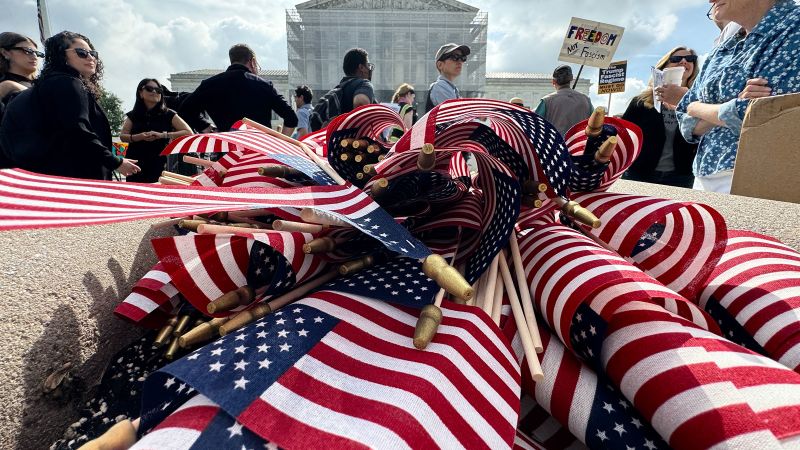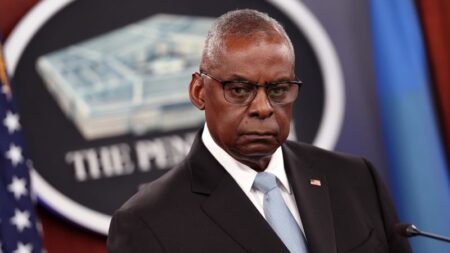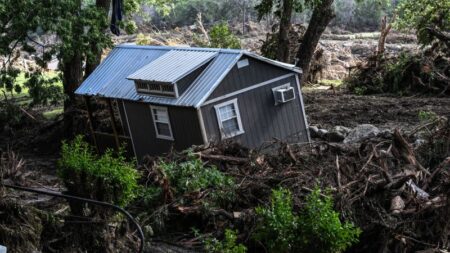On Thursday, a pivotal ruling from U.S. District Judge Joseph Laplante took center stage, as he issued a nationwide injunction against President Donald Trump’s controversial executive order aimed at revoking birthright citizenship. This order has been a focal point of debate, and Laplante’s decision provides a significant legal barrier to what many perceive as an infringement upon constitutional rights.
The ruling is notable, especially following recent Supreme Court decisions that had limited the scope of lower court judges to enact nationwide injunctions. Despite these restrictions, the high court maintained the possibility for groups of plaintiffs to pursue significant legal actions through class action lawsuits—a process Laplante just utilized in a case presented by immigration rights attorneys in New Hampshire.
During the proceedings, Judge Laplante swiftly granted a request to certify a nationwide class encompassing those who would be deprived of citizenship under Trump’s initiative. He issued a preliminary injunction that will halt the enforcement of the “Day One” order directed at any child born after February 20. The judge’s comments during the hearing conveyed a sense of urgency and gravity regarding the potential ramifications of the executive order, emphasizing that it would lead to irreparable harm by altering citizenship status established under long-standing policies.
Judge Laplante, an appointee of former President George W. Bush, underscored the principle that U.S. citizenship represents a paramount privilege fundamentally woven into the fabric of American life. In his ruling, he contemplated the legal and existential threat posed by Trump’s directive, arguing that the abrupt policy shift—executed without the due legislative process or public discourse—constitutes a violation of constitutional norms and principles.
In a detailed written order spanning 38 pages, Laplante articulated that the new government policy’s swift implementation could inflict unprecedented harm on citizenship rights, sparking uncertainty among potential class members. His ruling takes on added significance amidst a Supreme Court landscape that is increasingly wary of broad judicial injunctions, yet gives space for well-structured class action suits, as affirmed by the justices’ latest opinions.
In February, Laplante had already imposed a ban on enforcing the order against a specified set of nonprofit groups affected by it. However, during Thursday’s hearing, he expressed a more resolute approach, indicating that classification through a class action framework is considered more legally sound than issuing a nationwide injunction alone. This view aligns with sentiments reflected by members of the Supreme Court concerning the future of class action litigation as a viable mechanism to challenge federal policies.
The proceedings also delved into contentious issues surrounding the definition of the class, with immigration advocates pushing to include both children affected by the order and their parents. However, Judge Laplante decided to limit the class to children alone, presenting concerns about the varying immigration situations of adults that could complicate the class certification process.
This careful narrowing of the class allows for a quicker progression of the case, emphasizing the urgency to protect the rights of newborn children potentially facing significant repercussions as a result of the Trump administration’s policy. The American Civil Liberties Union (ACLU), which spearheaded the legal challenge to the executive order, cited the dire implications for children, including the risk of statelessness and obstacles to their future rights and opportunities in the United States.
Trump’s executive order, formally titled “PROTECTING THE MEANING AND VALUE OF AMERICAN CITIZENSHIP,” was signed into effect on January 20, asserting that the federal government would cease issuing citizenship documents to children born on U.S. soil if their parents were undocumented or in the country temporarily. This stance clashes with the Fourteenth Amendment, which has historically guaranteed citizenship to anyone born on American soil.
As the legal battles unfold, lower courts across the nation are reevaluating their stances in light of the recent Supreme Court deliberations surrounding executive power. While Judge Laplante’s ruling serves as a bulwark against the proposed directive, it remains solely one front in a broader landscape of judicial conflict over immigration and citizenship rights.
The implications of this ruling go beyond the courtroom; they resonate within the very ethos of American identity and the interpretation of citizenship rights. It signals ongoing tensions between the judiciary and executive branches regarding authority over immigration policy, as well as the persistent struggle for individuals seeking to define their place within the nation. As various legal processes continue, the outcome may significantly affect both current and future generations of American citizens.










